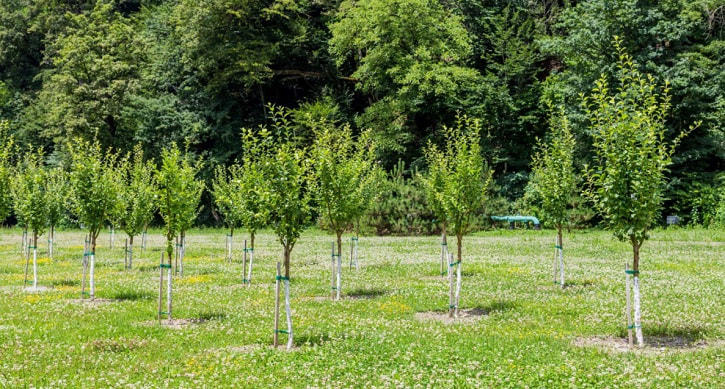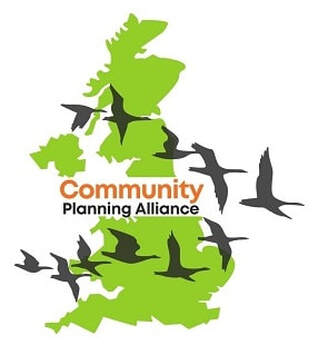(Site Path: Resources | Environment | Biodiversity Net Gain)
Biodiversity Net Gain Resources
|
Biodiversity Net Gain (BNG) is an approach to development and/or land management that aims to bring measurable improvements to the natural environment, leaving an area with increased or enhanced biodiversity when compared to the current status.
Mandatory biodiversity net gain is set out in the Environment Act (2021) and is expected to commence in early 2024.
|
|
The Act sets out the following key components to mandatory BNG:
- Minimum 10% BNG is required - calculated using the current Biodiversity Metric and approval of net gain plan
- Habitat improvements should be secured for at least 30 years via obligations/ conservation covenant
- Improvements or enhancements to habitat can be delivered on-site, off-site or via statutory biodiversity credits
- There will be a national register for net gain delivery sites
- BNG will also apply to Nationally Significant Infrastructure Projects (NSIPs)
- BNG does not apply to marine development
- BNG does not change existing legal environmental and wildlife protections
It should be noted that biodiversity net gain still relies on the application of the mitigation hierarchy to avoid, mitigate or compensate for biodiversity losses. It is additional to these approaches, not instead of them.
You will find multiple references to BNG in our library of resources below.
An introduction to Biodiversity Net Gain - courtesy of Natural England
A simple overview of BNG, in video form.
National Planning Policy Framework - courtesy of GOV.UK
Government's planning policies for England and how these are expected to be applied.
Natural Environment Planning Guidance - courtesy of GOV.UK
Explains key issues in implementing policy to protect and enhance the natural environment, including local requirements.
Updated planning guidance re. England’s protected species, ancient woodland & veteran trees - courtesy of GOV.UK
Updated advice to help Local Planning Authorities take planning decisions which protect and enhance England’s rare and threatened species, irreplaceable ancient woodland, and ancient and veteran trees.
Design Principles - courtesy of National Infrastructure Commission
Design principles for national infrastructure based on advice received from the independent National Infrastructure Design Group.
National Policy Statements - courtesy of National Infrastructure Commission
Government’s objectives for the development of nationally significant infrastructure, taking account of Government policy relating to the mitigation of, and adaptation to, climate change.
National Design Guide - courtesy of Ministry of Housing, Communities & Local Government
Government guidance on how well-designed places that are beautiful, healthy, greener, enduring and successful can be achieved in practice.
Net Gains Live - courtesy of Natural England
Launch of Biodiversity Metric 3.0, Small Sites Metric and the Environmental Benefits from Nature Tool
Environment Act (2021) - courtesy of GOV.UK
Legislation to improve air and water quality, tackle waste, increase recycling, halt the decline of species, and improve the natural environment.
CPA Survey Report: Biodiversity Net Gain - problems & solutions
Our 2021 survey found that an astonishing 52% of respondents believe that Government’s Biodiversity Net Gain proposals are very worrying or should be junked. Chief concerns are:
- the destruction of habitat now, with only the hope of new habitat later;
- developers gaming the system;
- problems with monitoring and enforcement;
- and lack of Council expertise.
To improve the system, it was felt that there must be requirements for:
- an up-front delivery, monitoring & enforcement fund;
- additional funding and training for Local Planning Authorities;
- independent ecologists.
Better community involvement will be imperative. The following changes were considered necessary:
- a community right of second opinion (paid for by developer);
- right of veto for Wildlife Trusts or Natural England;
- rights for communities to request call-in by Natural England;
- duty to consult beyond the development.
You can read our full report by clicking on the link below.
CPA Webinar: Biodiversity Net Gain - problems & solutions
Recorded on November 4th 2021, this helpful webinar includes contributions from:
- Sophus zu Ermgassen, based at Kent University, carried out research for his PhD which explored the ecological outcomes of mandatory Biodiversity Net Gain using evidence from early-adopter jurisdictions in England. He told us what he discovered ... and what community groups should look out for.
- Max Heaver, of DEFRA's Net Gain Policy and Legislation, Land Use Division, spoke to us about his work and then took questions from the audience.
- Rosie Pearson, Chairman of the Community Planning Alliance, talked through the responses to the CPA survey - whether people like BNG or loathe it, and what suggestions they have to improve it.
CPA Webinar: 'BioBlitzing' - the whys & wherefores
This webinar, recorded on September 6th 2022, focused on how communities can undertake their own 'BioBlitz'. (An intense period of biological surveying in an attempt to record all the living species within a designated area.)
The webinar commenced with Lisa Phipps (Keep Nethercote Rural) sharing what she has learned about recording bird and wildlife sightings. Lisa covered a range of points, including the record centres, why recording is important and much more.
Lisa was followed by Claire Baker and Sandra Fretwell-Smith (both from the Owlthorpe Fields Action Group), who shared their knowledge about planning and executing a community BioBlitz, including recording the data using iNaturalist and recording systems, identifying species and presenting results.
Biodiversity Net Gain - courtesy of the Local Government Association
Advice and guidance on biodiversity net gain for Planners and Councillors involved in planning. Provided by the Planning Advisory Service on behalf of the Local Government Association.
Biodiversity in the UK: bloom or bust - House of Commons Environmental Audit Committee
House of Commons report into the state of UK biodiversity and how the decline can be reversed.
NBN Atlas - courtesy of the National Biodiversity Network
The NBN Atlas is an online tool that enables UK biodiversity data to be shared, analysed and used for research.
Searchable by postcode, it holds more than 198 million species occurrence records and allows users to interrogate species records and download distribution maps.
Link: nbnatlas.org
Do you have or know of any resources that should be included in this library?
If so, please contact us today!


